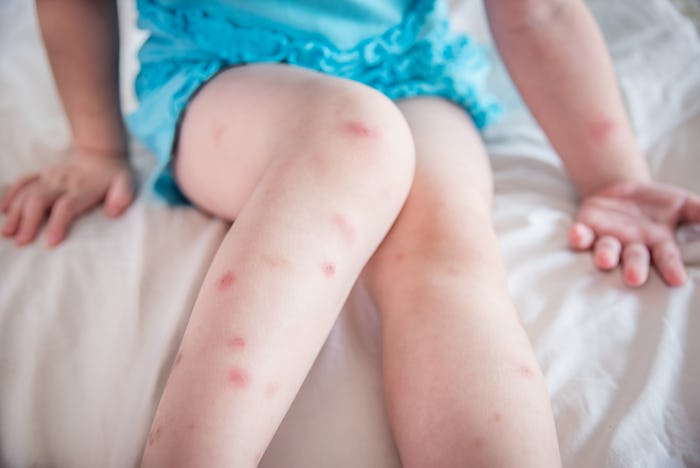Life
CDC: Tick & Mosquito Infections Are Rapidly Spreading — Here’s What You Need To Know
Summer is actually, for real, truly and honestly, nearly here. I can smell it in the air. For those of us living in the northern part of the North American continent, it's pretty exciting times after such a long and difficult winter. So the arrival of summer should be nothing but good news, right? Well... yes and no. Because the CDC says tick and mosquito infections are rapidly spreading, so parents are really going to want to stay ahead of the game when it comes to protecting their kids.
The Centers for Disease Control and Prevention recently reported a serious increase over the last 10 years in illnesses that can be traced back to mosquito and tick bites. Data collected by the CDC between 2004-2016 found that 640,000 illnesses from flea, tick, and mosquito infections were reported in the United States. Nine new germs have also been introduced or newly discovered since 2004 as well. The real issue appears to be the massive increase in reported cases of vector-borne diseases; vectors are mosquitoes, ticks, and fleas that spread pathogens through their bites. The plague is a vector-borne disease, for instance, and has been around for many years, but there are some new vector-borne diseases, like Heartland virus disease and Bourbon virus disease, which have been discovered more recently. And these vector-borne diseases have more than tripled since 2004; from 27,388 then to 96,075 in 2016.
CDC Director Robert R. Redfield said in a statement on the agency's website that a "growing list of diseases caused by the bite of an infected mosquito, tick, or flea—have confronted the U.S. in recent years, making a lot of people sick. And we don’t know what will threaten Americans next."
The goal of the CDC is to try to control the spread of mosquito and tick infections, but there are several issues making it difficult, including the introduction of mosquito-borne illnesses from around the world like the Zika infection, the steady increase of tick diseases, and the need for better public health programs at the state level to track these infections and properly deal with outbreaks if they occur. As CDC director of the Division of Vector-Borne Diseases Lyle Petersen noted:
The data show that we’re seeing a steady increase and spread of tickborne diseases, and an accelerating trend of mosquito-borne diseases introduced from other parts of the world. We need to support state and local health agencies responsible for detecting and responding to these diseases and controlling the mosquitoes, ticks, and fleas that spread them.
With the warmer weather fast approaching, it seems more important than ever to be fully prepared and informed to stave off mosquito and tick bites. Here's what you need to know to protect yourself and your family from mosquito and tick based infections.
Now before you panic and think to yourself, That's it, I'm staying inside until winter, it's OK. There are steps you can take to protect yourself and your family from mosquito, tick, and flea infections:
- Always use an EPA-registered insect repellent
- Don't just use the insect repellent on your person; treat things like boots, socks, pants, and tents with permethrin, especially if you're going to be in a heavily wooded area like a forest. You can also buy permethrin-treated clothing and camping gear.
- Wear light-colored, long-sleeved shirts and pants
- Avoid areas where the mosquito population might be heavier, like near standing water in pools
- Treat your pets for flea and tick control
- If you find any ticks or fleas on your pets, get rid of them. It's also a good idea to check daily.
- Keep air circulating in your house with fans (because mosquitoes are not strong fliers) and keep the outside of your home free of standing water where mosquitoes will breed.
Summer can still be fun and safe, of course, but it's probably a pretty good idea to take some important steps to protect your family from mosquito, tick, or flea bites before heading outside to enjoy some sunshine.
